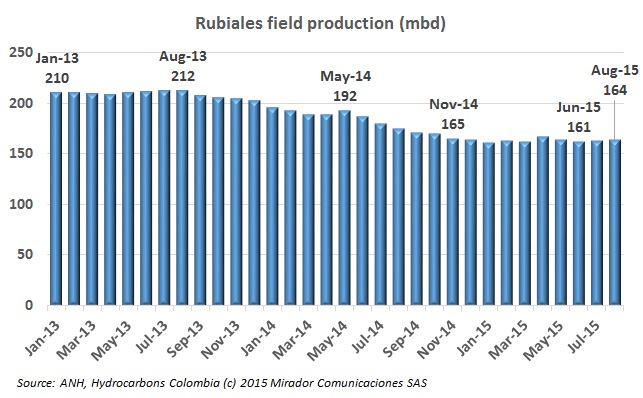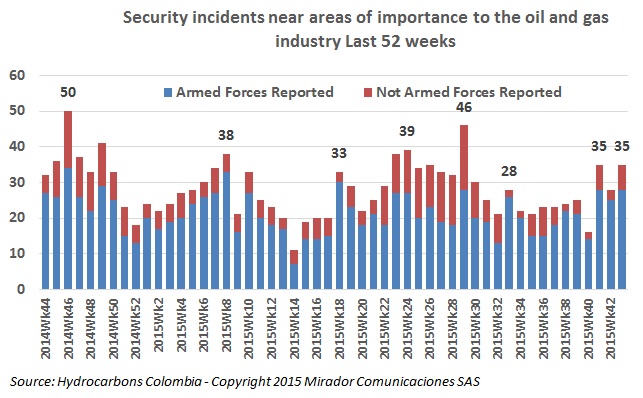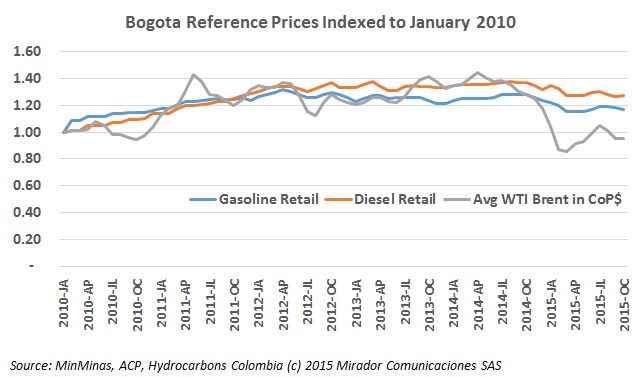Led by the Ministry of Mines and Energy (MinMinas) and some of Colombia’s largest firms in the mining, oil and gas sectors, an agreement to adhere to the Extractive Industries Transparency Initiative (EITI) has been signed, and the first report on the matter is due in December 2015

Ecopetrol (NYSE:EC) has finally made a decision on the future of the Rubiales field, and says that it will directly operate the field once its association contract with Pacific E&P (TSX:PRE) ends in June of next year.
The Casanare Departmental government and local authorities held a roundtable discussion on plans to establish environmental protections in the wetlands near the La Cristalina Lagoon and Paz de Ariporo, parts of which include the Llanos 62 production block.
A bit of spin is to be expected when government officials address strategic projects, but Minister of Finance Mauricio Cárdenas took it to a surprising level and asserted that the Cartagena Refinery really did not have overruns, rather its high cost was the fault of Glencore’s poor estimations in 2006.

The Farc claimed that despite a preliminary agreement, its unilateral cease fire and a halt of bombings from the military, the army’s constant operations against it have moved it to suspend its political and cultural courses.

The Minister of Mines and Energy Tomás González met with regional leaders from the Nariño Department and the National Direction of Hydrocarbons and said that fuel prices in regions should remain stable through the end of November at least, and reassured there would be supply.
While 2015 has been marked by the fall in oil prices, a report from BanColombia predicts that the full brunt of the fall will be felt in 2016, as the government’s austerity programs start to hit the overall economy.
Coal miner Drummond says that it could receive its environmental license “at any moment” to start production of Coal Bed Methane (CBM) in La Guajira, where a concession dispute with the coal miner of the same block, Cerrejón had kept the project from moving forward.
Ecopetrol (NYSE:EC) president Juan Carlos Echeverry believes the main challenge of Colombia’s oil industry is to attract and maintain investment. And he stuck to the government’s game plan: that the best way to do this is through achieving peace, not lowering taxes on companies.
The recent Colombian Petroleum Association (ACP) congress brought experts from all over the world, and a number of them offered a common theme in their presentations: to stay competitive the regulatory framework and fiscal policy must adapt to the industry.